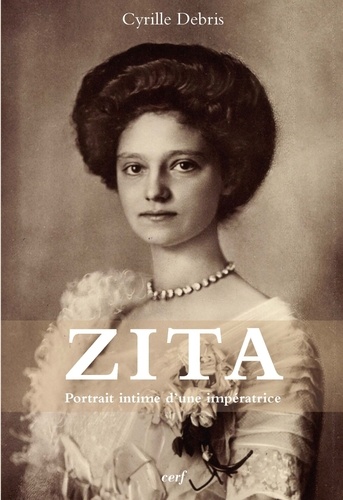En cours de chargement...
Zita (1892-1989) fut aux côtés de son mari le Bienheureux empereur Charles (1887-1922) la dernière souveraine d'Autriche-Hongrie entre 1916 et 1918. La cause de la béatification de l'lmpératrice fut introduite en 2009. Rédigé par le postulateur de la cause, à partir d'archives tout à fait inédites, ce livre laisse parler au travers de ses lettres la Servante de Dieu comme on ne l'a jamais connue. Bien que très discrète sur sa vie intérieure, elle parlait aussi d'abondance de cour à quelques rares personnes avec lesquelles elle noua une amitié spirituelle entre ces années 1916 à 1926, années cruciales : du règne à l'exil, du mariage au veuvage.
Parmi ces guides pour discerner la volonté divine, figurent deux âmes privilégiées : Sour Marie-Hilaire Tonnelier, religieuse converse de Notre-Dame de Sion (1865-1952) et Mère Virginia Brites da Paixâo, moniale Clarisse (1860-1929). Elles accompagnèrent Zita dans la dévotion au Sacré-Cour de Jésus et au Cour Immaculé de Marie et l'abandon à la Divine Providence qui veillait toujours malgré les tribulations.
Durant ces années, deux lieux l'ont plus particulièrement marquée spirituellement. Résidant au pays basque espagnol à Lekeitio, elle connut le Christ de Limpias, ce crucifix qui revivait la Passion depuis 1919. Les Hongrois y voyaient le symbole des souffrances de la couronne de S. Étienne après le traité de Trianon et visitaient leur Reine Zita entre Limpias et Lourdes. Enfin, l'Impératrice chercha à se rapprocher un peu plus encore de ses sours moniales à Solesmes.
Elle devint oblate de l'abbaye St. Pierre en 1926. La grande abbaye bénédictine devint son point fixe spirituel, au milieu des errances d'une vie d'exil qui ne faisait que commencer.--Between 1916 and 1918, Zita (1892-1989) reigned alongside her husband, Blessed Emperor Charles (1887-1922), the last sovereign of the Austro-Hungarian Empire. In 2009, the process for the beatification of the Empress was opened.
Written by the Postulator for her cause, based on previously unpublished archives, this book allows Zita to speak to us through her letters, revealing 'The Servant of God' as never before. Although she was very reserved about her inner life, she conversed with an open heart to the few rare people with whom she forged a spiritual friendship between 1916 and 1926, those crucial years that took her from the throne to exile, from marriage to widowhood.
Among these guides who help us discern the divine will are two privileged souls: Sister Marie-Hilaire Tonnelier, lay sister of Notre-Dame de Sion (1865-1952) and Mother Virginia Brites of Paixâo, a Clarisse nun (1860-1929). They accompanied Zita in her devotion to the Sacred Heart of Jesus and the Immaculate Heart of Mary, and in her abandon to Divine Providence which always watched over her, in spite of all her trials and tribulations.
During those years, two places left a great spiritual impression on her. Living in Spanish Basque country at Lekeitio, she was acquainted with the Christ of Limpias, the crucifix that has been manifesting Christ's Passion since 1919. The Hungarians saw it to be a symbol of the suffering of the crown of St. Stephen after the Treaty of Trianon and they visited their Queen Zita between Limpias and Lourdes.
Finally, the Empress wished to become closer to the sisters in Solesmes. She made her profession as an oblate at the St. Pierre Abbey in 1926. The great Benedictine Abbey became her spiritual home in a life of exile and roaming that was just beginning.


